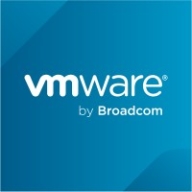

VMware Aria Automation and Prisma Cloud by Palo Alto Networks compete in cloud solutions with unique strengths. Prisma Cloud appears more favored due to its robust security measures and positive user reviews, whereas Aria Automation is noted for its comprehensive features.
Features: VMware Aria Automation provides mass parallel administration of large server farms, integration with Active Directory, and hybrid cloud management. Prisma Cloud offers dynamic workload identity creation, automated forensics, and comprehensive security for cloud-native applications.
Room for Improvement: VMware Aria Automation could enhance logging, integration, and UI, as well as introduce more templates. Prisma Cloud could improve UI intuitiveness and feature integration while offering better role-based access control.
Ease of Deployment and Customer Service: VMware Aria Automation supports diverse deployment options with commendable customer service, although consistency varies. Prisma Cloud focuses on security in hybrid and multi-cloud deployments, with mixed feedback on customer service.
Pricing and ROI: VMware Aria Automation's pricing is high, aligning with its feature-rich offerings, but may not suit all budgets. Prisma Cloud's pricing is also high but justified by its comprehensive security features. Both products deliver significant ROI, though they focus on different enterprise needs.
It eliminates the need for additional hardware, making it a financially and technically sound investment.
Reputation and data security are the two most important things to a financial institution.
We may have prevented a security breach with remediation of the findings.
They can respond with technical documentation or pass on the case to the next level because it requires the development of a new feature or changing a feature due to a bug.
They always help me resolve my tickets with minimal downtime.
One is always available.
We never had major issues to report or request support.
It's very scalable and very easy to use.
It's scalable.
The scalability is also a 10 out of 10.
I would rate it a ten out of ten for stability.
Prisma Cloud is a stable platform.
The solution is stable and is capable of covering large enterprises.
From a developer's perspective, especially for organizations like banks developing their applications, ensuring API security before deploying them to the cloud is crucial.
Prisma Cloud is an excellent tool.
Even though documentation was available, it took a while for a new person to understand what integration meant, what will be achieved after the integration, or how the integration needed to be done on the Azure or AWS side.
It operates for both of my products, however, as a product, it is complicated to integrate and automate with other products.
The cost was not on the higher side.
That's why a lot of our clients are shifting from cloud-native to Prisma Cloud: because of its effectiveness and because it is budget-friendly as well.
The solution is very expensive.
The automation capabilities are excellent.
We have integrated a number of pipelines so that whenever any development is built, the image is scanned for vulnerabilities.
With this product, we can monitor all the things even if they are on different clouds - and it can be done on one platform.
It helps us automate the workflow of creating many VMs and the TensorFlow key method.
We have strong regulations for maintaining compliance and mitigating risks with this product.
| Product | Market Share (%) |
|---|---|
| Prisma Cloud by Palo Alto Networks | 11.4% |
| VMware Aria Automation | 0.3% |
| Other | 88.3% |


| Company Size | Count |
|---|---|
| Small Business | 34 |
| Midsize Enterprise | 20 |
| Large Enterprise | 58 |
| Company Size | Count |
|---|---|
| Small Business | 32 |
| Midsize Enterprise | 24 |
| Large Enterprise | 130 |
Prisma Cloud by Palo Alto Networks provides comprehensive cloud-native security solutions. It covers dynamic workload identity, automated forensics, and multi-cloud protection, ensuring robust security across diverse cloud platforms.
Prisma Cloud delivers advanced capabilities for managing cloud security across AWS, Azure, and GCP platforms. It offers dynamic workload identity creation, real-time monitoring, and seamless integration into CI/CD pipelines. With automation, centralized dashboards, and enhanced visibility, users effectively manage security misconfigurations and vulnerabilities. While optimizing cloud environments through runtime protection and compliance, Prisma Cloud faces challenges with its navigation, pricing, and limited automation capabilities. Users seek improvements in API security, role-based access controls, and documentation quality, emphasizing the need for enhanced customization and reporting features.
What are the important features of Prisma Cloud?
What benefits or ROI should users consider in reviews?
Industries like finance and telecom rely on Prisma Cloud for managing cloud security posture and container security. Teams utilize its capabilities across hybrid and multi-cloud settings to ensure compliance and robust threat protection. Features like misconfiguration detection and runtime monitoring are critical in promoting security objectives in these sectors.
VMware Aria Automation is a cloud management tool that allows companies to simplify their cloud experience through a modern automation platform. The solution is designed to deliver self-service clouds, multi-cloud automation with governance, and DevOps-based security and infrastructure management. It helps organizations improve IT agility, efficiency, and productivity through its various features.
VMware Aria Automation has multiple use cases that include the following:
VMware Aria Automation Features
VMware Aria Automation has various features that allow users to easily perform operations. Some of the solution's capacities include:
VMware Aria Automation Benefits
VMware Aria Automation offers its users various benefits. Some of the biggest advantages that the solution brings to companies that utilize it include:
Reviews from Real Users
Awais J., CTO/CEO at a tech services company, likes VMware Aria Automation because it saves a lot of time, provides more visibility, and has extensive automation capabilities.
An IT consultant at a government rates VMware Aria Automation highly because the product gives you flexibility to analyze and consume resources.
We monitor all Cloud Security Posture Management (CSPM) reviews to prevent fraudulent reviews and keep review quality high. We do not post reviews by company employees or direct competitors. We validate each review for authenticity via cross-reference with LinkedIn, and personal follow-up with the reviewer when necessary.